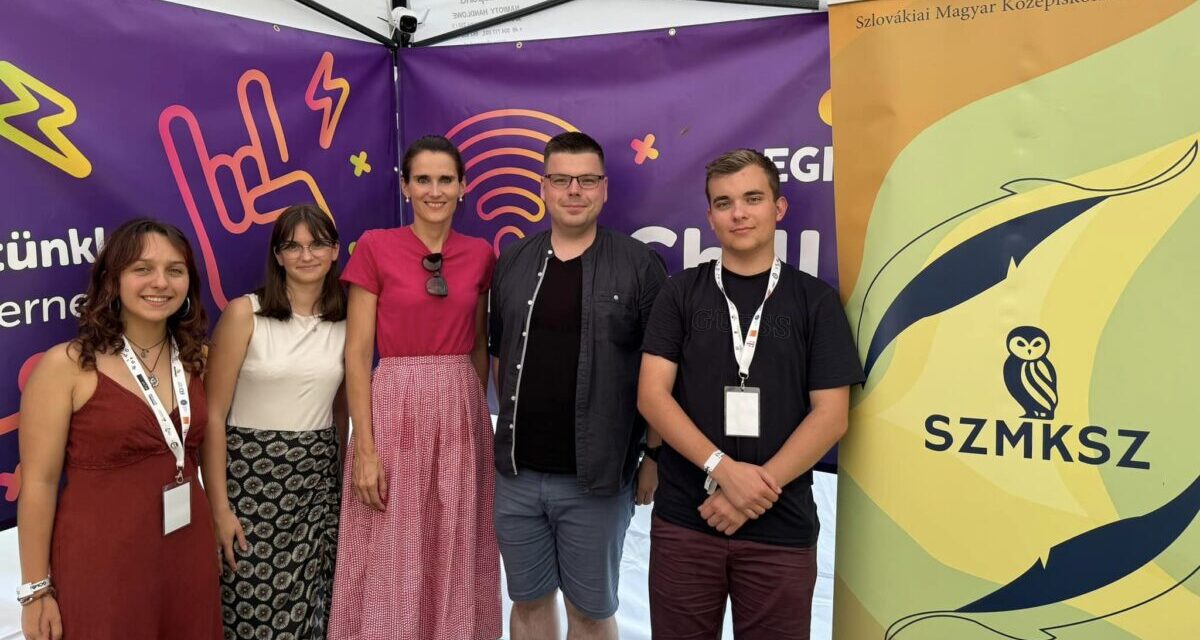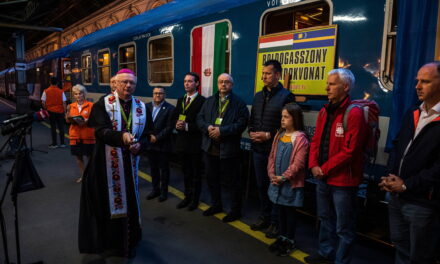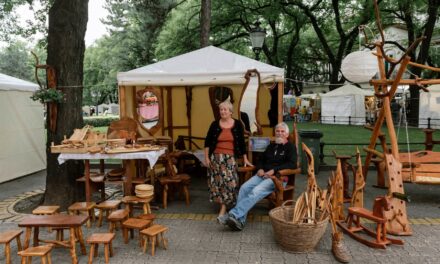Festivals like the one in Gombaszögi help young people to be able to talk to each other, connect with each other and turn to someone with their problems.
It is important that young people are interested in public life, said the Deputy Secretary of State responsible for youth at the Ministry of Culture and Innovation (KIM) on Wednesday at the Gombaszög Summer Camp in Slovakia, where he participated in a panel discussion on Hungarian youth in the Carpathian Basin.
Zsófia Nagy-Vargha in How are the young people doing? in the discussion, it was important for the ministry that some programs reach beyond the border.
He said that many scholarships operate across the border in the framework of talent management within the youth policy, in almost the same form as for young people in Hungary. Several programs will be announced, such as the Endre Ady scholarship or the Nation's Young Talents Scholarship, he added.
He emphasized: the ministry is trying to make all programs open.
Zsófia Nagy-Vargha also spoke about how among the biggest challenges facing Hungarian youth are the lack of communities, the war taking place next door and digitization.
Smart devices are starting to cause serious addiction, and this problem is a challenge affecting the entire society, not only in Hungary, but also in the world, he said.
As he said, special attention should be paid to the mental health of young people, for which one of the best "medicines" is a festival similar to the one in Gombasögi, so that young people can talk to each other, connect with each other and turn to someone with their problems. He added that, among other things, the ministry also supports telephone counseling services, and in addition, together with the NIT, a network volunteer program was launched, which can contribute to increasing social sensitivity and community building.
The deputy state secretary emphasized that the most important thing in youth policy is dialogue, i.e. that decision-makers listen to young people.
He added that youth receives a lot of attention in the European Union, and during the Hungarian presidency, NIT will be one of the country's main partners in conference meetings involving Hungary.
He noted that during Hungary's last presidency of the EU, the EU youth dialogue was established, the essence of which is for the decision-makers to listen to the youth delegates of each member state, and then submit the proposals to the European Council in the form of various documents.
Zsófia Nagy-Vargha highlighted that, during the consecutive presidency, I would like to examine the possibilities of disadvantaged young people living in rural areas and channel their proposals to the decision-makers.
Péter Kovács, the president of NIT, talked about, among other things, the good cooperation between the organization and the decision-makers. He called youth policy horizontal, and said that the economy, environmental affairs, foreign affairs and all policy sectors must deal with the situation of young people in their respective areas.
Emma Kiss, the foreign affairs vice-president of the Association of Hungarian Secondary Schools in Romania (MAKOSZ), said at the panel discussion that they are working with the organization to unite the young Hungarians in Transylvania.
He added that they currently have seventy-two member organizations, which include school and county student councils, and they also organize events, the largest of which is the Free University of Student Government.
Ferenc Brezo, the former president of the Association of Hungarian High School Students in Slovakia, spoke, among other things, about Hungary always supporting young Hungarian communities abroad.
He added that Hungary was the initiator of the positive changes experienced recently, for example with regard to the Government Commissioner for Minorities.
MTI
Cover photo: Zsófia Nagy-Vargha with the participants of the Gombaszög Summer Camp
Source: Facebook/Zsófia Nagy-Vargha













